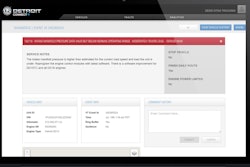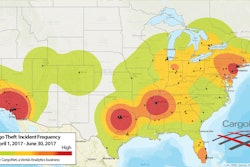Driver’s may the largest group impacted by the wide-spread application of autonomous driving technology, but unless those trucks can fix themselves there’s another segment of the industry bracing for impact.
Self-driving vehicles are one of the latest and hottest trends in transportation leaving some business owners wondering what the future holds for all modes of transportation, including the trucking industry.
Last month, Waymo and Avis Budget Group struck a deal for the for rental group to maintain and service fleets of self-driving cars to be serviced and maintained and similar deals for trucking are likely to follow as this type of technology is refined.
“Technology will not slow down. As the mechanics and technicians for the trucking industry, we can’t either,” says Wiers Fleet Partners CEO Tom Wiers. “We are up to the challenge and know the trucking industry will be forever evolving and our mechanics, technicians and drivers will always have a role in developing the entire trucking world. The advanced technology will also require specialized services and technicians who will be required to have an advanced knowledge revolving around autonomous tech.”
Wiers says tire blowouts, oil changes and drivetrain issues will still need to be addressed routinely but the technician force will have to embrace the change in technology by seeking out new knowledge as autonomous truck fleets become a reality.
Wiers Fleet Partners COODrew Hettich says the company works to head off the need for further education by developing its technicians, mechanics and staff to be familiar with digital technology platforms such as telematics.
“We also look forward to growing our relationship with the manufacturers of the new self-driving semi-trucks as we proactively seek out ways to be a leader in the fleet management industry,” he adds.
Since 2012, at least 41 states and D.C. have considered legislation related to autonomous vehicles and 19 states – Alabama, Arkansas, California, Colorado, Connecticut, Florida, Georgia, Louisiana, Michigan, New York, Nevada, North Dakota, Pennsylvania, South Carolina, Tennessee, Texas, Utah, Virginia and Vermont – and Washington D.C. have passed legislation related to autonomous vehicles.
“We don’t see truck cabs being completely empty for a while but know it is on the horizon and are proactively watching government regulations and compliance issues to ensure we are fully prepared to handle the coming evolution in trucking,” Wiers says.












